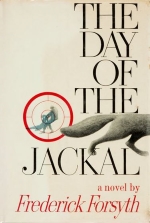Friday, March 17, 2023
Friday, March 10, 2023
(posts) a Raymond Carver poem: "Deschutes River"
This sky, for instance:
closed, gray,
but it has stopped snowing
so that is something. I am
so cold I cannot bend
my fingers.
Walking down to the river this morning
we surprised a badger
tearing a rabbit.
Badger had a bloody nose,
blood on its snout up to its sharp eyes:
Later, eight mallard ducks fly over
without looking down. On the river
Frank Sandmeyer trolls, trolls
for steelhead. He has fished
this river for years
but February is the best month
he says.
Snarled, mittenless,
I handle a maze of nylon.
Far away —
another man is raising my children,
bedding my wife, bedding my wife.
Friday, March 03, 2023
something about first reading David Sedaris
I knew of David Sedaris because I, probably like most people, had heard him on National Public Radio (NPR), including the annual Christmastime rebroadcasts of his 1992 reading of "Santaland Diaries." It is a funny story perfectly written. Call him a humorist and NPR celebrity, but Sedaris is a writer.
Sedaris's stories draw from his own life. I suspect much of it is stretched and embellished. Some parts could be completely fictional. But almost all of it is good.
So far, I have read Me Talk Pretty One Day and Dress Your Family in Corduroy and Denim. Both are collections of essays. These essays spin off Sedaris's childhood, his family, drug use, on-the-job and education experiences, and his relationship with his partner Hugh, which led to a relocation to France.
Me Talk Pretty One Day, published in 2000, might be Sedaris's most popular. He read some of the essays on the public radio show, “This American Life.” The stories I enjoyed most include "Go Carolina," which describes a young David going to his elementary school speech therapist for his lisp; the story about his brother Paul, "You Can't Kill the Rooster" (I think the accounts of Paul’s swearing are almost entirely fictional); and "Today's Special," which makes fun of fancy restaurant menus.
Dress Your Family in Corduroy and Denim is another collection of essays and was released in 2004. My favorites here include "The Change in Me,” in which Sedaris attempts to become a late-era hippie; “Slumus Lordicus," the story of working for his low-income-housing landlord-parents; and "The End of the Affair,” one I really enjoyed about Sedaris and Hugh disagreeing about a romantic movie.
Of the two books, my favorite Sedaris prose so far is in “Slumus Lordicus," when Sedaris is reflecting on the collection of low-income rental properties his parents now owned:
"So what do you think?" my father said. He wasn't talking about Lance or Minnie Edward's boyfriend, but all of it. Everything before us was technically ours—the lawns, the houses, the graveled driveways. This was what ingenuity had bought: a corner of the world that could, in time, expand, growing lot by lot until you could drive for some distance and never lose your feelings of guilt and uncertainty.
Note: Sedaris’s first collection of essays, Barrel Fever, was published in 1994. His sister is Amy Sedaris, who was Jerri Blank in Comedy Central’s “Strangers with Candy.”
Saturday, February 25, 2023
about feelings couples have
Saturday, February 18, 2023
mercifully about a musician
Saturday, February 11, 2023
about a scene from the Columbo episode, “Any Old Port in a Storm”
“Any Old Port in a Storm” aired October 7, 1973, and guest starred Donald Pleasence as Adrian Carsini, a wine connoisseur who murders his half-brother to prevent him from selling the family winery. Peter Falk is, of course, Lieutenant Columbo.
Adrian Carsini's anxiety grows with each encounter with the amiable detective. In the just-one-more-thing scene (a staple of every episode), Carsini is almost begging to be caught and relieved of the pressure when Columbo mentions the detail that first triggered his suspicion: the dead man's sports car—which Carsini staged at the beach where he dumped the body—was spotless even though it had supposedly been parked there in the rain. Columbo yells his apparent afterthought—turning the screw even more—from the end of the winery's long driveway:
Columbo: Oh, Mr. Carsini! Sir! I just remembered one of the reasons they’re not releasing your brother’s body. I forgot to tell you the other day. Well, you know your brother’s car? It stayed out on that cliff for a week. During that time, it rained, and then we had some sun. But when we saw the car the morning we found the body, it looked like it just came off a showroom floor.
Carsini: What’s your point?
Columbo: No water marks. Can you explain that?
Carsini: No, I can’t.
Columbo: Well, there must be a reason for it. There always is!
Carsini: When you find it, will you tell me!?
Columbo: Believe me, sir, you’ll be the first to know!
Saturday, February 04, 2023
(posts) a Raymond Carver poem: "The Other Life"
Now for the other life. The one
without mistakes.
- LOU LIPSITZ
My wife is in the other half of this mobile home
making a case against me
I can hear her pen scratch, scratch.
Now and then she stops to weep,
then – scratch, scratch.
The frost is going out of the ground.
The man who owns the unit tells me,
Don’t leave your car here.
My wife goes on writing and weeping,
weeping and writing in our new kitchen.
Saturday, January 28, 2023
copy for some third-generation band
The song kicks right into a jam with its chin up and chest out. This recalls a classic sound perfected decades ago by bands like Motörhead. The video shows the band mimicking a performance under stage lights flared by a filter on the camera lens. After 90 seconds, the song throttles back. The riff turns to sludge—brained—and the video shows bottles break across the band members’ heads. Then the song regroups and returns to the opening jam.
Friday, January 20, 2023
something about Frederick Forsyth’s “The Day of the Jackal”
I watched “Carlos,” an excellent movie about the infamous international terrorist for hire, Carlos the Jackal. Carlos was a Venezuelan Marxist named Ilich Ramirez Sanchez; the recruiter in the Popular Front for the Liberation of Palestine code-named Ramirez Sanchez "Carlos" because of his South American roots; then The Guardian began referring to him as Carlos the Jackal after one of its correspondents supposedly saw the fugitive with a copy of the novel, The Day of the Jackal.
So the movie led me to read that 1971 fictional thriller. The novel, written by English author and journalist Frederick Forsyth, is about a professional assassin contracted by a French dissident paramilitary organization to kill Charles de Gaulle, the President of France. The book covers the organization’s history of failed attempts; its subsequent activities and hiring of the assassin; the assassin’s meticulous planning and preparations; and the Government of France’s work to protect the President, foil the dissident organization, and identify and catch the assassin. Forsyth trusts his reader and includes a lot of wonderful details and characters. The result is an especially satisfying read.
Notes:
- Carlos the Jackal is now serving a
life sentence in France. One of his most notorious crimes was his 1975 raid on
the Organization of the Petroleum Exporting Countries headquarters in Vienna; three people died during that attack and several OPEC oil ministers were kidnapped.
- The 2010 film “Carlos” has a good soundtrack and an excellent performance by Edgar Ramírez, who plays Carlos as a man whose reputation precedes and probably exceeds him.



